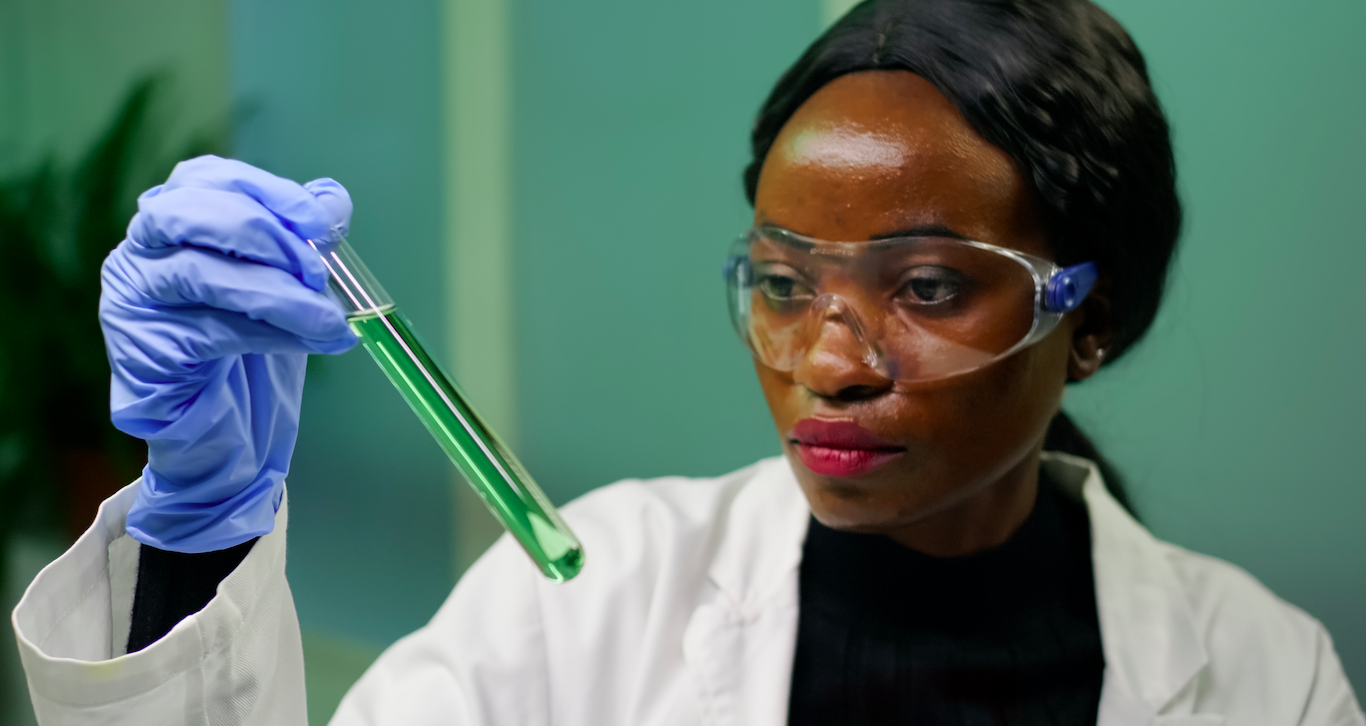 A researcher in a laboratory. Most people said they want scientists to play a more
active role in public life and to work
closely with politicians.
A researcher in a laboratory. Most people said they want scientists to play a more
active role in public life and to work
closely with politicians.The study, which involved over 71,000 participants from 68
countries, ranked Kenya fourth globally in trust in scientists – trailing only
Egypt, India, and Nigeria, and coming ahead of countries like the United
States, China and most of Europe.
“In most countries, most people trust scientists,” they say in the
study published in Nature Human Behaviour journal.
They found no country where average trust in scientists was low, even though trust varied widely between and within countries.
In Africa, Egypt has the highest trust levels, followed by Nigeria, Kenya then Uganda. Globally, Albania ranks lowest, just below Kazakhstan, Bolivia, Russia and Ethiopia.
The researchers measured trust using an index based on perceived competence, honesty (integrity), concern for society (benevolence), and openness to feedback.
That Kenya ranks this high in a global trust index is not surprising, given that policymaking often leans heavily on politics and ethnic inclination than on scientific evidence.
“People in countries with high inequality may see scientists
as a trustworthy alternative to perceivably corrupt governments and political
and economic elites,” says the study, titled “Trust in scientists and their
role in society across 68 countries.”
The study suggests a critical opportunity to the Kenyan
government to anchor more decisions in science because they would receive
widespread public approval.
Nearly three-quarters said scientists should work closely
with politicians, while more than half supported scientists actively advocating
for policies.
But why does trust in scientists tend to be higher in some lower-income countries (like Egypt, Nigeria, Kenya, and India) and lower in some wealthier ones (like Russia, Israel, France or South Korea)?
 The trust in scientists may reflect higher hopes for what science can deliver. People in these regions may view science as a needed and underutilised force for good.
The trust in scientists may reflect higher hopes for what science can deliver. People in these regions may view science as a needed and underutilised force for good.The researchers found a surprisingly weak or even negative link between economic development and trust in science. People in poorer countries often express more trust in scientists than those in rich countries.
That could be because poor countries often see science as a pathway to development.
“In lower-income countries, scientists and science are often
seen as enablers of national progress and economic development”.
In Kenya, science is still associated with positive change, such as better healthcare, agricultural innovations, and mobile technology. This belief may make people more inclined to view scientists favourably.
Lower-income countries also have less intense public scrutiny of science, fewer high-profile controversies, or less polarising debates about scientific topics such as vaccines and climate change.
“In some high-income countries, science has become
increasingly politicised, and public trust may be undermined by perceived
alliances between scientists and political or corporate actors,” the authors
said.
Kenyans and citizens of other poor countries also have higher expectations of scientists.
“People in many African and Asian countries demand more from
scientists– they want scientists to speak to the public, influence policy, and
solve real-world problems like poverty and disease”.
In that sense, higher trust may reflect higher hopes for what science can deliver. People in these regions may view science as a needed and underutilised force for good.
You might also assume that religiosity is associated with lower trust in scientists, given that some people perceive that science disagrees with their religion.
This study found this is not necessarily correct. “Indeed, we found that, overall, religiosity is positively associated with trust in scientists,” the authors said.
The researchers also investigated what people believe scientists should focus on. Across the world, people ranked improving public health, solving energy problems and reducing poverty as top research priorities.
But here’s the catch: many respondents felt scientists were not doing enough on these issues. The biggest gap was in poverty reduction.
“The responses suggest a substantial discrepancy between what [people] perceive science is currently prioritizing and what they expect scientists to prioritize,” the study says. Globally, people believed that too much research was focused on military and defence technology, an area they ranked lowest in priority.
Interestingly, in parts of Africa (including the Democratic Republic of Congo), people still wanted relatively more investment in military research, possibly due to security concerns.
Kenya’s high ranking in the global trust index comes at a time when the country is only beginning to develop a stronger science-policy interface.
Until recently, Kenya lacked a national policy framework to support scientific research and innovation. It was only in 2023 that the Ministry of Education finalised the National Science, Technology and Innovation Policy.
The Principal Secretary (PS), State Department for Higher Education and Research, Dr. Beatrice Inyangala said last year that Kenya has never had a national Science Technology and Innovation policy since independence.
The draft policy developed in 2023 was validated last year and was expected to be shared with the Parliamentary Committee on Education for input and comments before being forwarded to the Cabinet for approval.



















